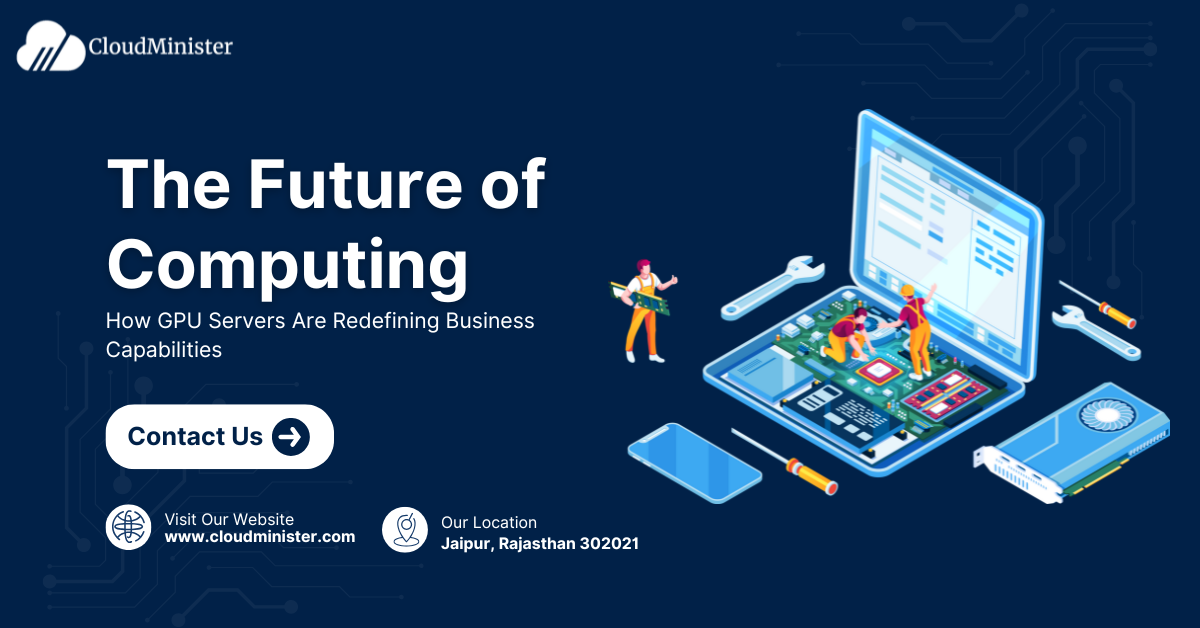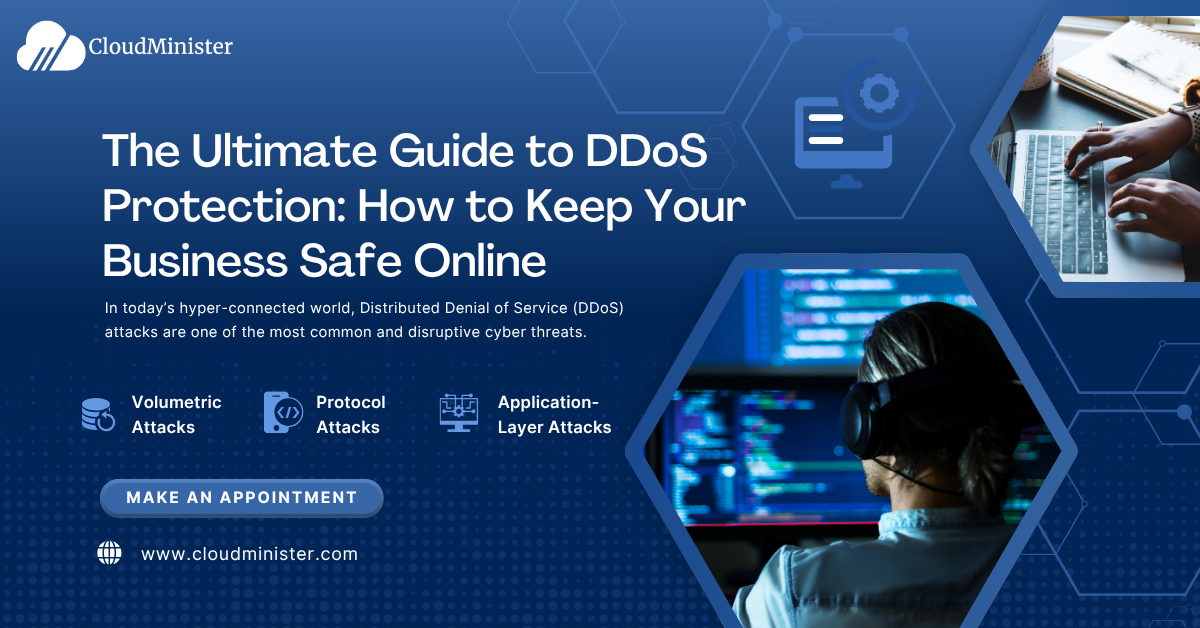The Future of Computing: How GPU Servers Are Redefining Business Capabilities

Strong 8k brings an ultra-HD IPTV experience to your living room and your pocket.
Breaking Through Computational Barriers
In today's data-driven world, businesses face an ever-growing demand for faster processing, real-time analytics, and AI-powered automation. Traditional computing infrastructure often struggles to keep up this is where GPU-accelerated servers come in.
At CloudMinister Technologies, we specialize in high-performance GPU server solutions that unlock unprecedented speed and efficiency for modern enterprises. Whether you're training AI models, analyzing massive datasets, or rendering ultra-high-definition content, our GPU servers provide the computational muscle needed to stay competitive.
Why GPUs Outperform Traditional CPUs
CPUs (Central Processing Units) are general-purpose processors designed for sequential tasks. GPUs (Graphics Processing Units), however, were originally built for rendering graphicsa task requiring thousands of parallel operations. This architecture makes them exceptionally powerful for:
Deep Learning & AI – Accelerating neural network training
Scientific Computing – Running complex simulations in minutes instead of days
Financial Modeling – Real-time risk analysis and algorithmic trading
Media Production – 4K/8K video editing and 3D rendering
Healthcare Research – Faster genome sequencing and drug discovery
CloudMinister’s GPU Server Advantages
1. Cutting-Edge Hardware for Maximum Performance
We deploy the latest NVIDIA H100, A100, and AMD Instinct MI300X GPUs, ensuring top-tier performance for AI, HPC, and graphics workloads.
2. Scalable & Cost-Efficient Solutions
On-Demand Cloud GPUs – Pay only for what you use
Dedicated GPU Servers – Full control for high-security workloads
Hybrid Deployments – Balance between cloud flexibility and on-prem power
3. Optimized Software Stack
Pre-configured environments for:
- TensorFlow, PyTorch, and MXNet (AI/ML)
- CUDA & OpenCL (Parallel computing)
- Blender & Unreal Engine (3D rendering)
- Ultra-Fast Data Processing
NVMe Storage – Eliminate storage bottlenecks
100Gbps Networking – Minimize latency in distributed workloads
5. Enterprise-Grade Reliability
Redundant Power & Cooling – Maximize uptime
24/7 Proactive Monitoring – Prevent issues before they arise
Transformative Use Cases
Learn more about GPU?- Read Blog
1. AI & Autonomous Systems
Self-driving car companies use GPU clusters to process sensor data in real-time, making split-second decisions.
2. Real-Time Big Data Analytics
E-commerce giants leverage GPU-powered analytics to personalize recommendations instantly.
3. The Metaverse & Virtual Worlds
Creating immersive VR environments demands massive GPU resources for rendering and physics simulations.
4. Healthcare & Biotechnology
Researchers use GPU acceleration to analyze DNA sequences and develop precision medicine solutions faster.
What’s Next in GPU Computing?
The rise of quantum computing, generative AI, and real-time ray tracing will push GPU technology even further. Innovations like:
NVIDIA’s Blackwell architecture (Next-gen AI acceleration)
AMD’s 3D V-Cache GPUs (Enhanced performance per watt)
Cloud-based GPU orchestration (Seamless scaling)
Why Partner with CloudMinister?
We go beyond hardware—our team provides:
- Workload-Specific Optimization – Tailored setups for AI, HPC, or rendering
- Global Low-Latency Deployment – Servers located in strategic data centers
- Future-Ready Infrastructure – Ready for tomorrow’s breakthroughs
Final Thoughts
GPU servers are no longer just for gaming or niche research—they’re the backbone of modern innovation. Whether you're a startup or a Fortune 500 company, having the right GPU infrastructure can mean the difference between leading the market or falling behind.
Note: IndiBlogHub features both user-submitted and editorial content. We do not verify third-party contributions. Read our Disclaimer and Privacy Policyfor details.



